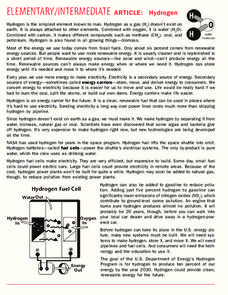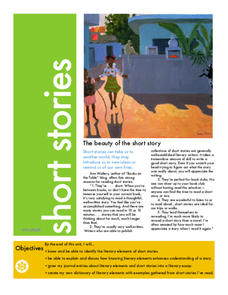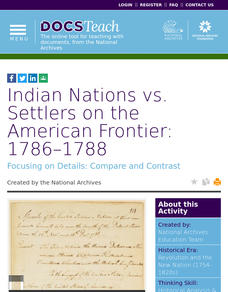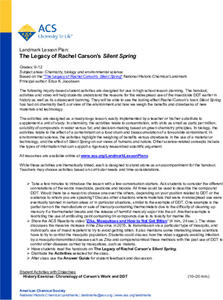Curated OER
Maniac McGee: Find Your Match
Students explore similarities and differences between people. In this diversity and literacy lesson, students read Maniac McGee and consider character traits. Students play a game in which they locate classmates with similarities and...
Curated OER
Multiple Perspectives
Analyze multiple perspectives in short stories. Sixth graders examine the point of view of each major character in three different short stories. After reading the stories, they role-play characters and hypothesize about the character's...
Library of Congress
The Story of The Three Little Pigs
Bring the 1904 version of the classic kid's tale, The Story of the Three Little Pigs to your young readers. With original drawings by L. Leslie Brooke, young reader take a step into a world where pigs can talk and a wolf is big and bad.
National Wildlife Federation
Endangered Species: What and Where?
What do endangered species have in common with non-endangered species? Given an endangered species to read about, individuals choose another species that is not endangered to compare it to. As a class, they create a species book with the...
Library of Congress
The Wonderful Wizard of Oz
Follow the journey of Dorothy, the Scarecrow, the Tin Man, and the Cowardly Lion down the Yellow Brick Road. An eBook version of The Wonderful Wizard of Oz features the original text and graphics. Notice how colors change between...
US Department of Energy
Hydrogen and Electrolysis
Electrify your science class with this simple electrolysis experiment. After first reading about hydrogen and its potential as an alternative energy source, a demonstration is performed showing young scientists how water molecules can be...
Curated OER
Author Study: Cynthia Rylant
Explore the life's work of one of the great children's authors using this ten-lesson author study unit. After first performing some whole-group research into the life of Cynthia Rylant, the class goes on to read six different stories,...
It's About Time
Organic Substances
Host an exciting lab in which learners burn fruit rinds to better understand hydrocarbons. A reading passage and analysis questions wrap up the lesson.
Digital History
The Age of Constitution Writing
Was the United States significantly more democratic in their governing structures and laws after the overthrow of British authorities? Compare and contrast summaries of the country's constitutions under British rule and after...
CK-12 Foundation
Topographic and Geologic Maps: Topographic Maps
Maps are great for helping you get where you're going, but what does that place actually look like? Geology scholars compare and contrast the features of topographical and geologic maps using an interactive lesson. The resource describes...
National Museum of Australia
Telling Our Indigenous Stories
How far back is 40,000 years? Scholars research the first indigenous people in Aboriginal Australia. Using museum artifacts, maps, and background readings, they form conclusions on the life of the first Australians and their struggles to...
Cold Spring Harbor Laboratory
Genes Don't Blend
Yellow and blue make green—unless you're studying the inheritance of genetic traits. An interactive lesson explains the difference between blended traits and pure traits and gives examples of their occurrence. The resource includes a...
Nettlehorst School
The Beauty of the Short Story
Put scholars in charge of their learning! Individuals read information, discuss what they learned, and put their new knowledge into practice—all in a complete and detailed resource. Activities include creating a literary terms handbook...
American Battlefield Trust
Experiencing the Battle of Franklin
Scholars watch videos, study an animated map, and read a firsthand written account to explore the impact of the Battle of Franklin during the Civil War. Academics analyze images, complete worksheets, and create journal entries to...
Stanford University
League of Nations
An interesting lesson explores the Treaty of Versailles and the creation of the League of Nations to prevent further large scale warfare in World War I. A presentation explains how the United States Congress reacted to the offer to join...
Curated OER
1863: Shifting Tides
The victory at Gettysburg is forever immortalized in the famous speech given by Present Abraham Lincoln. Designed for secondary pupils, an interesting lesson plan explains how 1863 was a pivotal year for the Union. Academics explore the...
American Museum of Natural History
What's This? Feeding
Some species have pretty creative methods for catching food. Young scientists learn about some interesting ways organisms get the nutrients they need by navigating an online interactive lesson that would be suitable for a remote learning...
DocsTeach
U.S. v. Amistad: A Case of Jurisdiction
Just what is jurisdiction and why does it matter? A helpful activity takes academics on a journey to understand how judicial jurisdiction works. Scholars read excerpts from the Constitution and court documents to understand the process...
DocsTeach
Indian Nations vs. Settlers on the American Frontier: 1786–1788
Once Americans won the Revolutionary War, their quest to gain land did not end. An interesting activity focuses on Americans' expansion into the frontier following the war and how it conflicted with Native Americans living in the area....
American Chemical Society
The Legacy of Rachel Carson’s Silent Spring
How do we protect crops and protect the environment at the same time? Using reading materials, learners explore the history of the use of pesticides and biocides. They create a timeline and then explore the current practices.
Smithsonian Institution
Borders within the United States: Indian Boarding Schools and Assimilation
Native American Nations ... sovereign entities or removable tribes? A thought-provoking instructional activity explores the relationship between Native American tribes and the United States, including forced assimilation and removal from...
Smithsonian Institution
Resistance to School Desegregation: The Boston Busing Crisis
Despite how it sounds, Boston's busing crisis wasn't a transportation problem. Academics address the problems faced by African Americans following school desegregation and the struggle to receive equal educational opportunities. Scholars...
Smithsonian Institution
Hidden Histories: Mexican Repatriation During the 1930s
Mexican Repatriation: the forgotten deportation of American citizens. The resource focuses on the deportation of Mexican American citizens during the Great Depression. Young historians read documents, complete a free-write, and fill out...
Curated OER
Are You a Frog?
Students listen to the book "Ask Me If I'm a Frog, and compare their anatomy and habits to the anatomy and habits of a frog to identify with the characteristics unique to frogs. They respond to teacher-generated questions by writing...

























